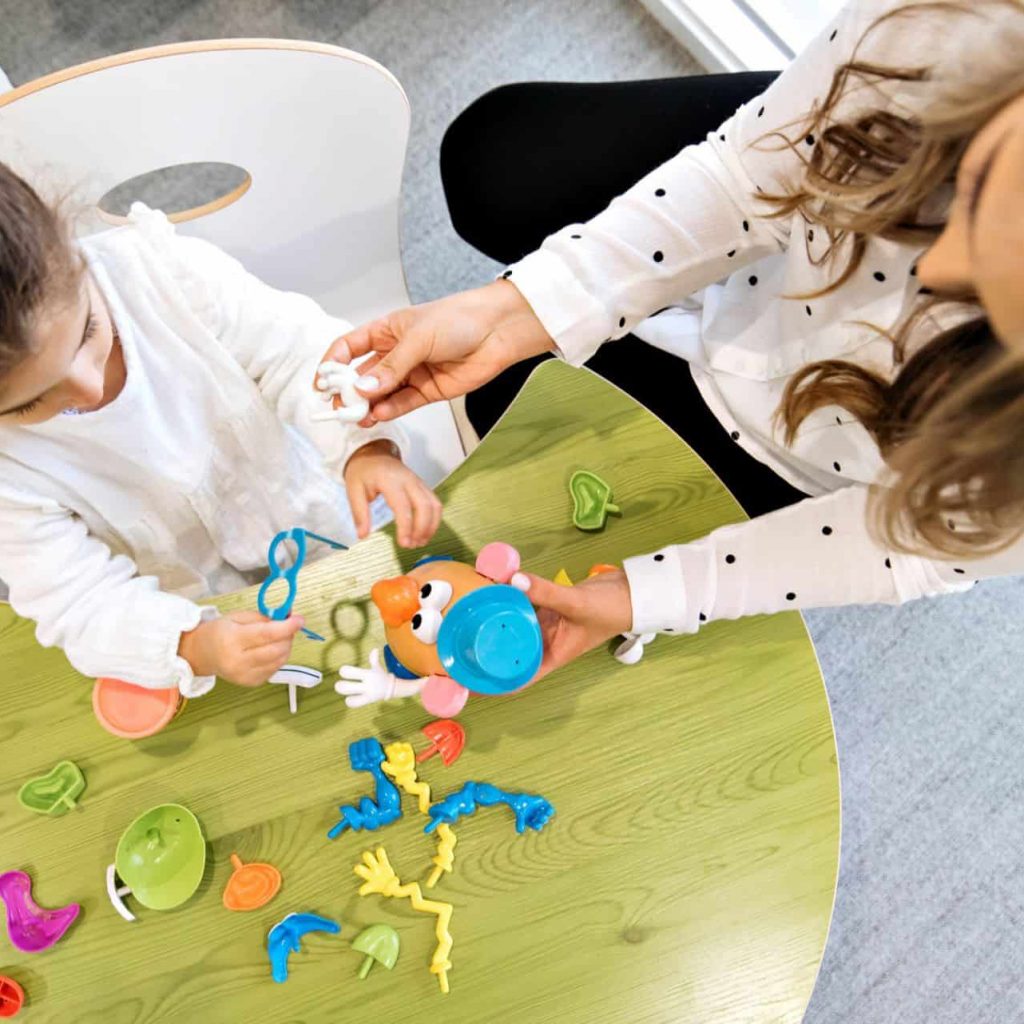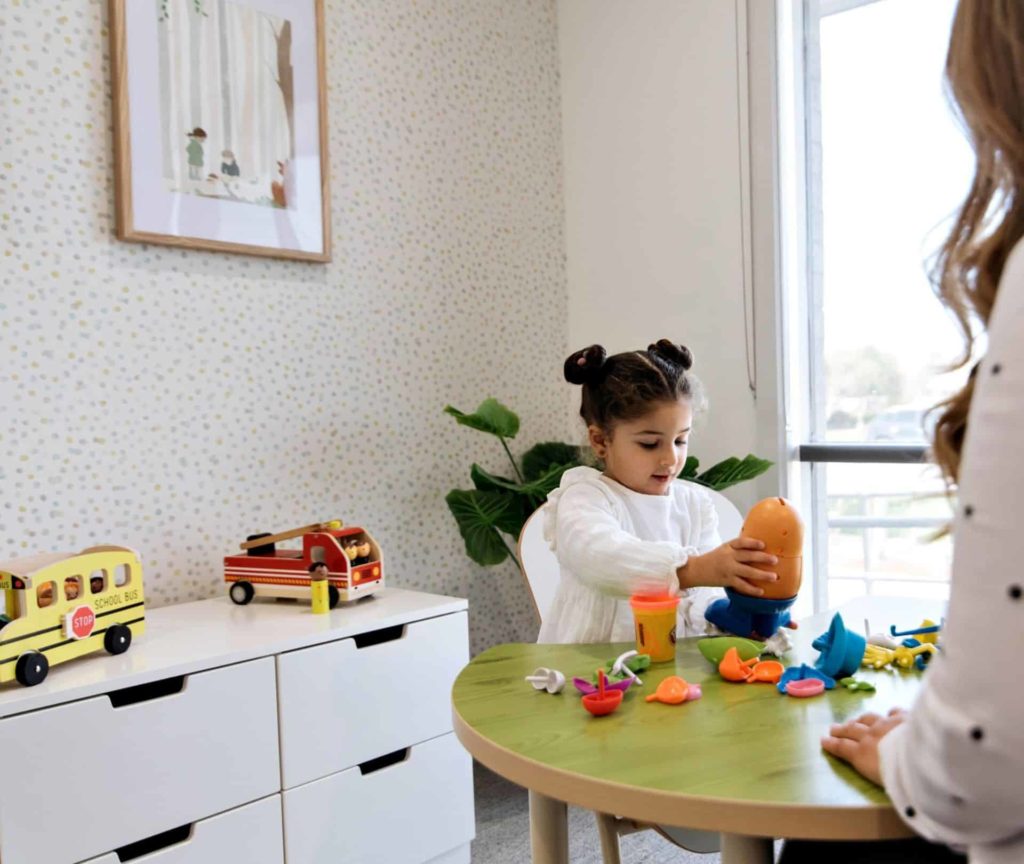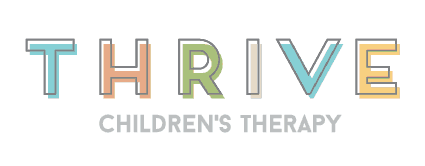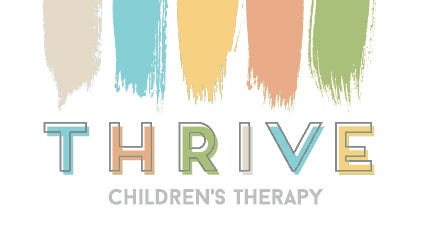COMMUNICATION ASSESSMENTS
Our speech pathology assessments use a combination of informal and standardised tests to gain a clear insight into the child’s skills and abilities in the areas of:
- Speech and phonology
- Receptive Language
- Expressive Language
- Fluency
- Social Communication
- Literacy
- Thrive Children’s Therapy also offers Autism assessments.

What does an assessment involve?
An assessment usually involves the following:
- The therapist will review any relevant documents that the parents have brought to the session, such as reports or letters from other professionals (e.g. doctors, speech pathologists, psychologists, occupational therapists or teachers).
- Parents will be asked to discuss their concerns about their child, and any observations that they, or other professionals, have observed about their child’s communication and learning.
- If appropriate, children will typically complete a formal standardised assessment which is chosen based on the child’s needs. Formal standardised assessments provide scores which can be compared with the results of same aged peers.
- In cases where a formal assessment is not deemed appropriate, an informal assessment is completed. In these cases, the clinician will observe the child in interactions, and while playing with a range of toys or activities. The information collected from these observations is then compared to developmental information that is expected of a child at that particular age and stage of development.
- Parents are encouraged to be in the room for both types of assessment and to observe how their child performed within the activities.
- At the end of the session the clinician will provide brief feedback to families about how they feel the child went.
- The Speech Pathologist will work with parents to make the session a fun and positive experience for children.
Thrive Children’s Therapy offers individualised assessment programs for clients, depending on the concerns that are raised by parents, caregivers, educators, or other health professionals.

What will happen after the assessment?
Once the assessment is complete, a summary or comprehensive report is available, and an individualised program is designed. Fees associated with report writing and ongoing therapy will be discussed with the family. Reports take some time to prepare with most reports being provided two weeks after the assessment is completed.
Regular feedback and suggestions for practice at home will be provided while the child is receiving therapy. Therapy sessions are designed to be fun and engaging, to optimise the child’s participation and motivation.
If you are concerned about your child's development, contact our clinic to discuss your needs.

